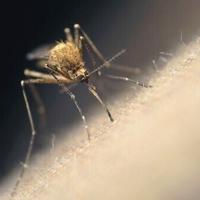Infection
Human West Nile Infections Reported in Eastern Washington
OLYMPIA – The Washington State Department of Health has confirmed two cases of West Nile virus in residents from Walla Walla and Franklin counties, diagnosed within the past week. Both people were most likely exposed within their county of residence.
In addition, today WSDA announced two horse cases of West Nile virus, in Grant and Benton counties most likely exposed within their counties.
“We caution the public to avoid mosquito bites, contact your healthcare provider if you develop symptoms consistent with West Nile virus, and encourage human and animal healthcare providers to consider West Nile virus in patients with symptoms. Horses can be vaccinated for West Nile virus, with an annual booster shot available. There is currently no West Nile virus vaccine available for humans,” says a Department of Health Release.
“Most cases of West Nile virus are mild. However, serious illness and death are also possible. That’s why we urge people to take precautions to avoid mosquito bites and to contact their healthcare provider if they develop symptoms,” said Dr. Amy Person, WA DOH Regional Medical Officer – Benton-Franklin Health District.
West Nile virus is a virus carried by mosquitos that can cause illness in people and animals. Disease due to West Nile virus occurs during mosquito season in Washington state, which starts in the summer and continues through the early fall. Washington state sees a few cases of West Nile virus every year, particularly in areas with hot summer temperatures. The virus is most often reported in south central Washington, but it has been identified throughout the state.
Most people and animals who are bitten by mosquitos infected with West Nile virus develop no symptoms. About 1 in 5 people who are infected will develop fever with other symptoms such as headache, body aches, joint pains, vomiting, diarrhea, or rash. Most people recover completely, but fatigue and weakness can last for weeks or months. Serious illness occurs in less than 1 in 100 people infected with West Nile virus. The risk of severe infection is highest among people 60 or older and people with certain medical conditions such as cancer, diabetes, hypertension, and kidney disease.
The best protection measures against diseases carried by mosquitos are bite prevention and habitat reduction.

